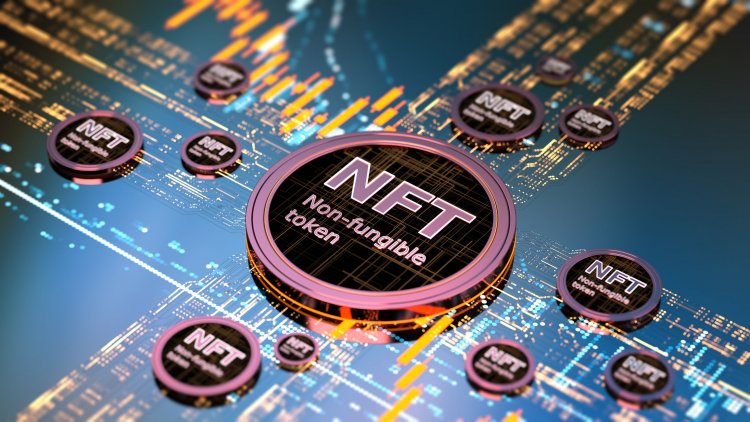What are NFTs and How Can They Change Real Estate Property Acquisition
Non-fungible tokens (NFTs) seem to be the trending news in the digital space. Real estate, among other industries is progressively catching up on this trend. What then are NTFs and how do they work in the real estate industry?

Scrolling through Instagram stories, I came upon one of my favorite Kenyan YouTubers; Olive Nkirote. She's a crypto educator so to say. "I honestly can't imagine myself investing in any other asset apart from real estate and crypto. "She said in one of her Instagram stories.
This got me thinking, since real estate is a timeless investment, and crypto and blockchains seem to be the future, can this two collude?
We all know that crypto and blockchains are the future. It's quite inevitable even when most of us are still skeptical about it .
Now, let's see how real estate transfers could go in the future.
As NFTs are revolutionizing the investment sector, the real estate shouldn't be an exception. Infact anyone should be able to bid on a house as NFT as long as they have enough money in crypto currency for the auction.
First we need to know what NFTs are, given that it's becoming a hot topic in the world but few people have knowledge of what they really are.
NTFs in full is Non Fungible Tokens. The word Fungible means replicated this means that piece of property, intellectual or real physical property stored in the blockchain network as an NFT cannot be replicated or copied or tampered with.
Once stored, you can trade it in the market place and the buyer will have tokens of ownership. NFTs majorly favors intellectual properies but knowing that it's possible to store a real estate property as one, let's explore some of it's possible advantages.
Advantages of investing in NTFs
Possibility of Fractional Ownership
Normally, there aren't any means of dividing a property into smaller fractions and selling it to multiple buyers.
But after converting a piece of property into an NFT, owners can divide them into a number of tokens, therefore giving buyers the right to own a share of the property.
You can think of it as how high yield solutions work. Several small investors invest in the High Yield Solution available in an investment company, the company buys or builds a property.
The investors have shares that represent fractions of the ownership of the said property, equivalent to their investments and when the company rents it out or sells it and gives the small investors their share of dividends or profits only this time it's in a digital platform.
Works like Crowd Funding
Homeowners could sell fractions of their property to a large number of small investors by issuing tokens on the blockchain. Investors could hold these tokens and receive a rental income for doing so - more like interest earned as crypto value of the property goes up.
Upon appreciation of the property to their satisfaction,they can resell it and split the profit on capital.
A Mortgage Lending Platform
If one has an NFT backed up real estate property, then they should be able to get a loan from the crypto currency lending platform,and yes they do have those! where the platform user can get a loan based on the worth of the crypto currency they hold.
The Story of Shane Dulgeroff
This is a real estate broker who is way ahead of us . He decided to follow the NFT hype and put his house at 221 Dryden street,in thousand oaks California into the NFT blockchain. He did this with a psychedelic-Flavored video of the house.
The Artwork and the house are up for auction on opensea, with a minimum bit of 48 Eth(Etherium) which is almost USD117,000. No one has bid yet.
Here are some disadvantages of investing in real estate through NFTs .
Disadvantages of investing in NFTs
Aside from the fact that any new technology or investment comes with it's fair share of high risks;
There Are No legalities in This Market
The legal right to actually control the property as a buyer is unclear ,this is because you get to own rights to tokens of the property but what about the real estate property itself? Now if the token holders aren't really able to control the real estate property, could the residents remain in the property forever?.
Limited Use if it
Like many NFTs, the buyers only have the right to use the property in a limited way. You can access and use the tokens but cannot own the original property itself.
Issues with Debt Collection
This falls under mortgage loan borrowing. If the borrower falls into default, who collects the debt?
Also, due to it's lack of clear legalities in the crypto currency and blockchain platform,it would be harder to follow up as opposed to the normal way of borrowing loans ,purchasing real estate property and selling them, where there are property laws to protect the borrower the lender the property owner and buyer.
In conclusion, the possibilities of real estate properties to be converted into NFTs are high and with enough knowledge on this type of investment ,of its advantages and its risks, it looks like a promising market. So lets have open minds.
If you have a real estate press release or any other information that you would like featured on African Real Estate Blog Post do reach out to us via email at [email protected]

































